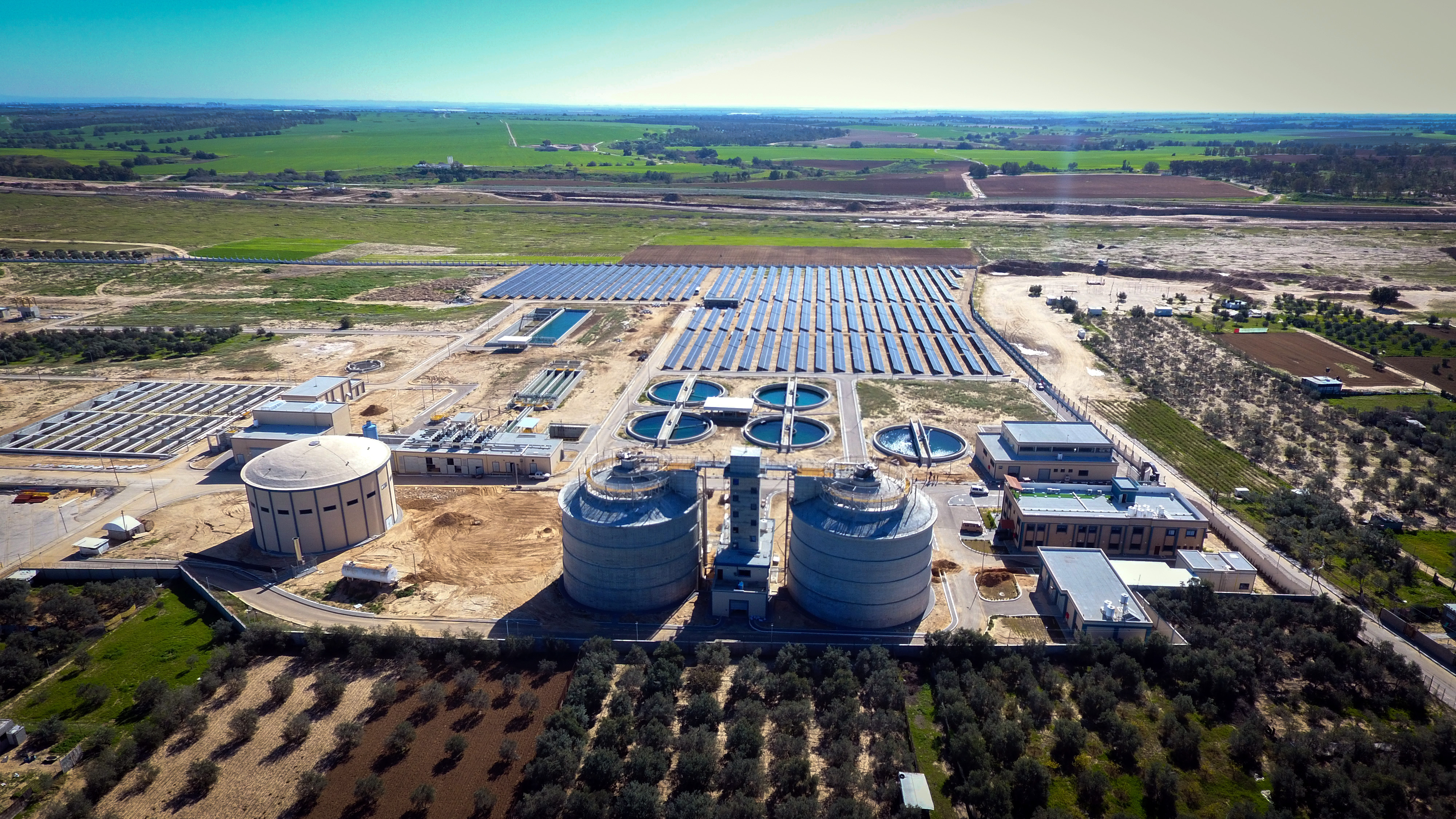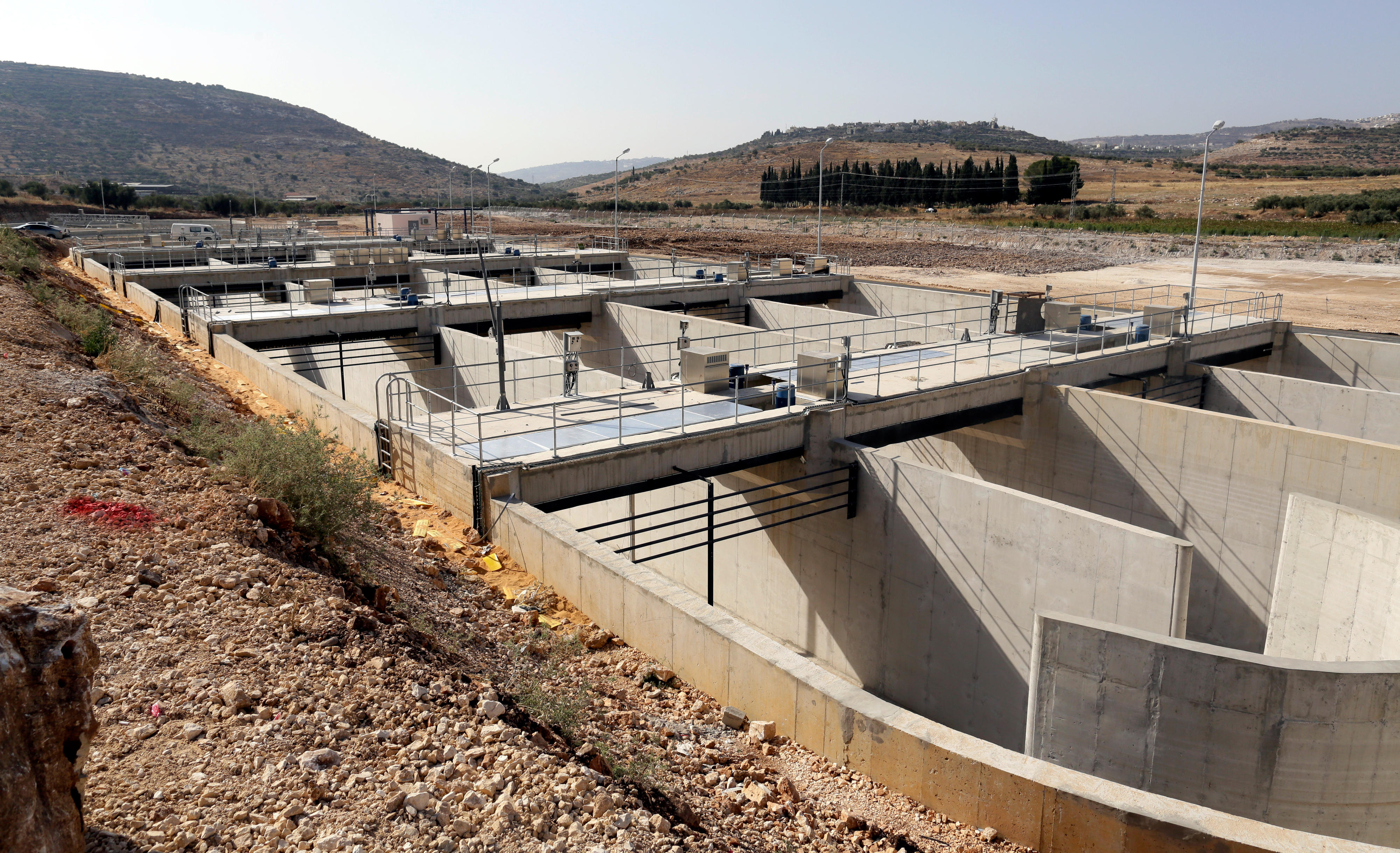Central sewage treatment plant for Gaza City
Copyright© Farid S. Ashour, Gaza Central Sewerage Project
Conserving nature and natural resources, protecting life on Earth – with a focus on water and wastewater management Better infrastructure in the water sector
In order to foster more efficient water use and safe wastewater disposal or use of treated wastewater, Germany is assisting the Palestinian territories through the rehabilitation and new construction of water distribution networks, reservoirs and wastewater treatment plants. In the future, a focus is to be put on the efficient re-use of treated water, especially in the Palestinian agricultural sector.
Project example: Gaza central wastewater treatment plant
The water supply situation in Gaza is particularly dramatic. The groundwater aquifer is being massively overexploited. As a result, sea water is leaking in, threatening to cause irreversible damage to the groundwater. Through its development cooperation, Germany wants to help secure water supplies for the people of Gaza.
The largest current project has been the construction of a central wastewater treatment plant in Gaza City for a catchment area of about one million people. Notwithstanding the difficult situation in Gaza, it was possible to start operation in early 2021, making a major contribution towards reducing the pollution of groundwater and of the Mediterranean Sea.
Germany has also been working with other donors on a major project for sea water desalination in the Gaza Strip.
These projects are affected by Israel's continuing military operation triggered by the atrocious terrorist attack by Hamas on Israel on 7 October 2023. As the fighting is still continuing, it is not possible at present to get a precise picture of the amount of damage done to BMZ-funded infrastructure. However, available images show that there has been damage. A final assessment can only be made once visits to the locations are possible.
Project example: Wastewater treatment plants in Nablus
The Nablus-West sewage treatment plant shortly before commissioning in July 2013
The city of Nablus is the main economic hub of the northern West Bank. Since 2005, the Nablus water supply networks for about 200,000 people have been improved with German support. This has particularly benefited the inhabitants of neighbourhoods in higher parts of Nablus, who are now receiving water on a regular basis again.
In parallel, efforts are under way to improve the wastewater system for about 250,000 people. Previously, the city's wastewater was collected and then discharged into local wadis untreated. This polluted the environment and the region's scarce groundwater resources, and it resulted in health hazards for the people.
The treatment plant for the western part of the city was completed in 2013. The treated wastewater from the plant is to be used to irrigate agricultural land in the vicinity of the plant. Such year-round irrigation will significantly increase yields over the levels achieved previously by relying on rain-fed agriculture only. Germany is also supporting the construction of the wastewater treatment plant for the eastern part of the city.

